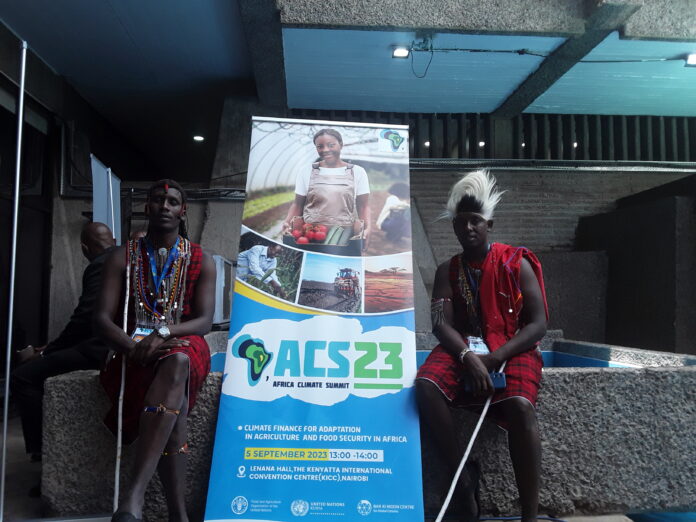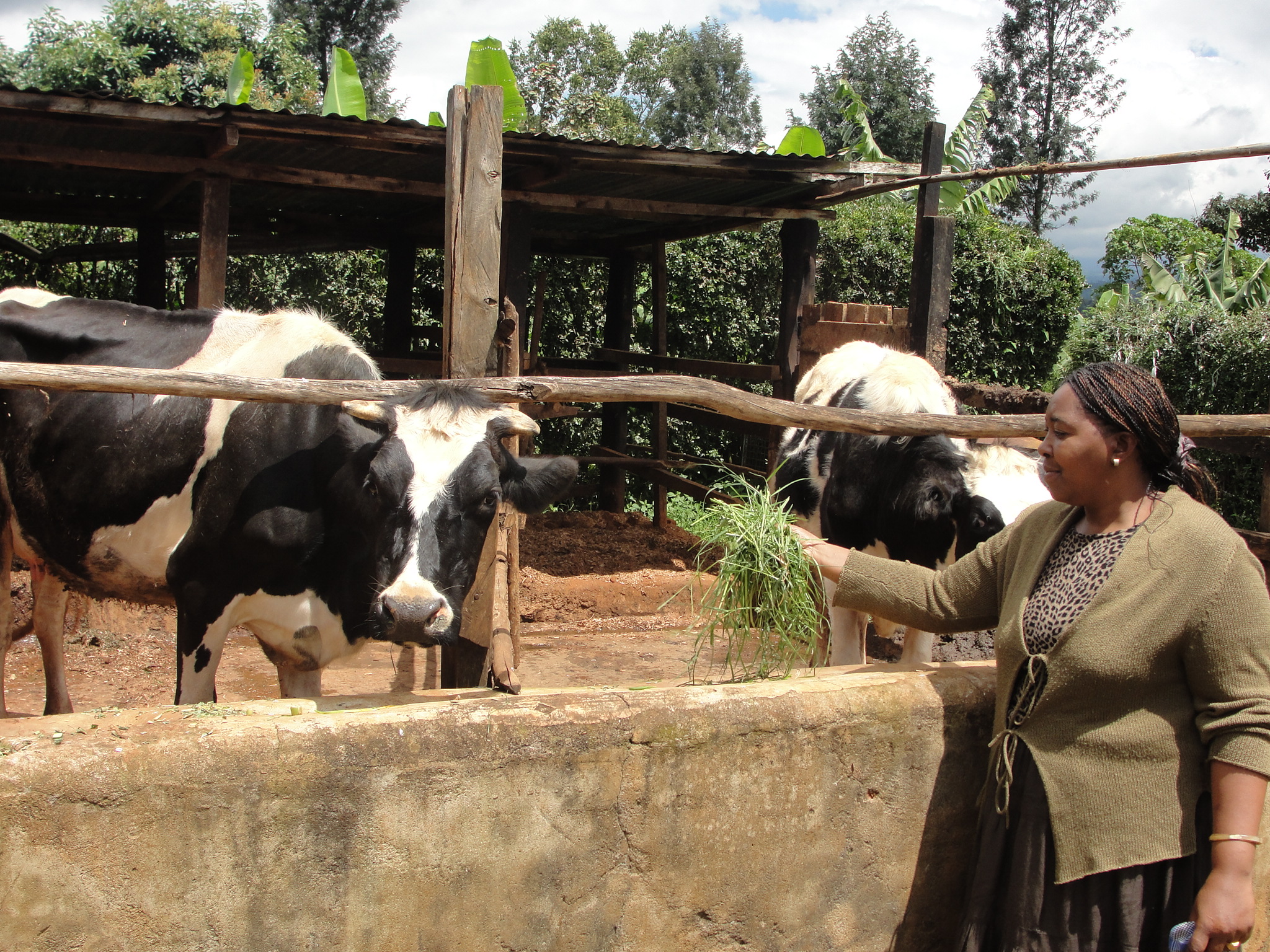
By Joyce Chimbi
Nairobi, Kenya: East African countries are grappling with extreme poverty due to an escalating and consistent drought situation. Gaps and weaknesses in the agricultural sector have prevented a consistent, sustainable reduction in rural poverty and inequality, leaving smallholder farmers trapped in a poverty cycle.
As matters of agriculture and the green economy took center stage at the just concluded inaugural Africa Climate Summit under the theme, ‘Driving Green Growth and Climate Finance Solutions for Africa and the World’, delegates spoke of the urgent need to halt and reverse the snowballing food crisis.
Africa’s agricultural sector is characterized by broken food systems that are not serving the people. Poor yields, poverty, and an alarming degradation of natural resources have left farmers and other vulnerable households across the region exposed and unable to cope with the severe effects of climate change.

“Africa at large is blessed with many natural resources. We have fertile lands, rivers, and lakes. But our mismanagement of the environment and our ecosystems has led us to the crisis that we are currently facing. To build resilient agricultural systems and essentially resilient food systems, we need to go back to the basics. Let us embrace practices that are centered on soil and water conservation and escalate agroforestry options available to us,” says Mark Anthony Mwangi, a food security expert in the East Africa region.
Mwangi was speaking at the sidelines of the Nairobi climate summit, where he stressed that Africa must make bold decisions about the future of agriculture, as a strong pillar in meeting the UN’s Sustainable Development Goals (SDGs) and as a tool to lift people out of poverty and hunger.
He says that there is no reason why millions of Africans should remain trapped in vicious cycle of hunger and poverty. A sizeable portion, 65 percent, of the world’s remaining uncultivated arable land is in Africa, and the soil is rich and very fertile. Yet, more than 282 million people or 20 percent of Africa’s population are suffering from hunger despite rural Africa being a hub for farming and herding.
That there is nothing to eat for one in five people in Africa – an issue that food security experts such as Mwangi say is untenable and must be tackled with the urgency it deserves. For, without strengthening the agricultural sector, African countries are going to veer off the SDGs agenda and at the current pace, might never get back on track.
By far, agriculture is the single most important economic activity as it employs an estimated two-thirds of the continent’s working population. The agriculture sector plays a critical role in the economy accounting for an estimated 33 percent of Kenya’s Gross Domestic Product (GDP) and another 27 percent of GDP indirectly through linkages with other sectors.
Additionally, the sector employs more than 40 percent of the total population and 70 percent of the rural population. An estimated 7.5 million smallholder farmers in Kenya alone are grappling with extreme and drastic weather changes.
Vulnerabilities to climate change have multiplied with shifts in the rainfall season and longer dry seasons, disrupting growing seasons and leading to lower yields and higher levels of food insecurity. The rains are coming too early or too late and farmers are increasingly unable to predict and align farming activities to the changing weather patterns.
“We have to fix our food system. As they are currently structured, they cannot meet the needs of our people. Even worse, more and more people are sliding into extreme hunger and poverty because hunger is on a steady rise due to a series of climate shocks, including the prolonged dry spells ongoing in many parts of Africa,” says Agnes Nyambura, a University Lecturer based in Kenya.
UN’s Food and Agriculture Organization (FAO) says that agroecology is essentially a scientific discipline, a set of practices, and a social movement that, if scaled up can meet the ever-expanding food security gap while contributing directly to multiple SDGs.
As a scientific discipline, Mwangi agroecology is keen on creating and strengthening synergies between agroecosystems in a manner that is sustainable. As a social movement, agroecology is a sociocultural issue focusing on interlinkages between knowledge and social justice.
As a vehicle to ending extreme hunger and poverty, agroecology is linked to SDG 1 on eradication of poverty, goal 2 on ending hunger, goal 4 on ensuring quality education, goal 5 on increasing water-use efficiency, goal 6 on promoting decent jobs, goal 8 on ensuring sustainable consumption and production, goal 12 building climate resilience, goal 13 on securing sustainable use of marine resources, goal 14 on halting the loss of biodiversity.
Nyambura says that at the heart of all these goals, is agroecology’s capacity to increase the resilience of both people and the environment, mitigating climate change and sustainable using, conserving, restoring, and preserving natural resources and biodiversity. Fostering agroecology has multiple benefits for Mother Nature and the people who derive their survival from nature.













